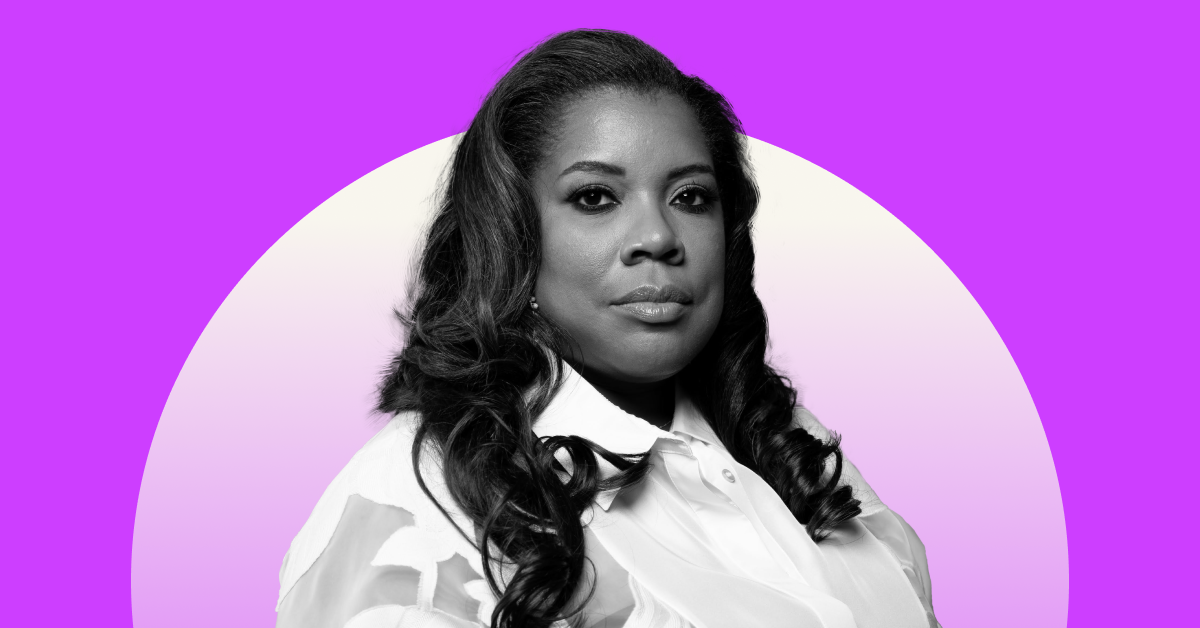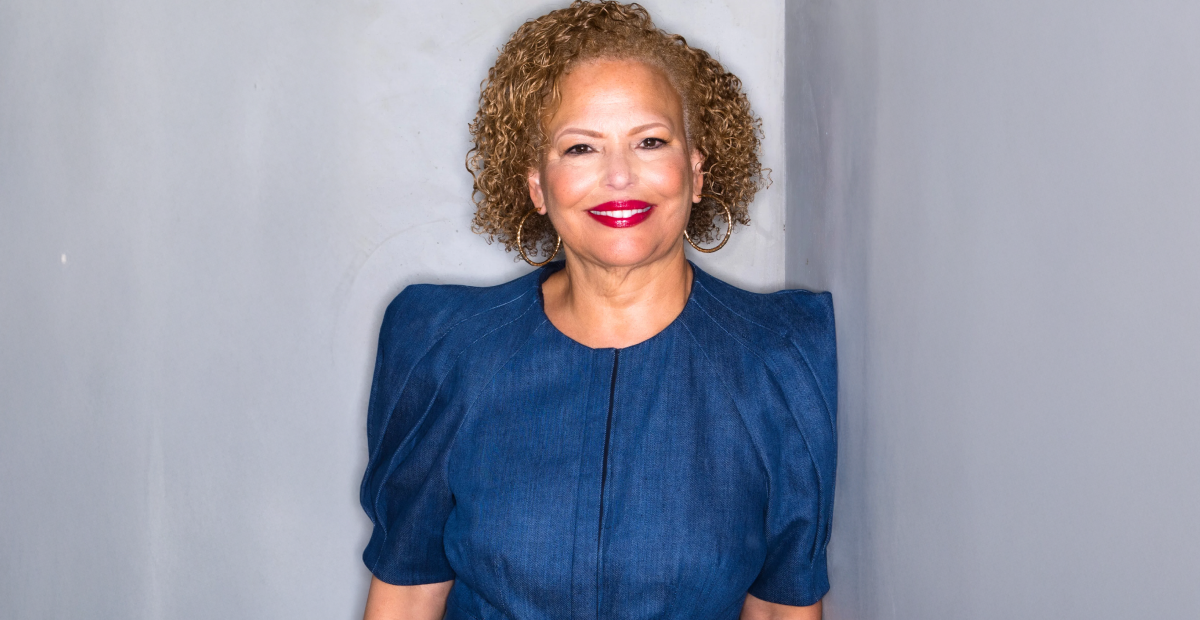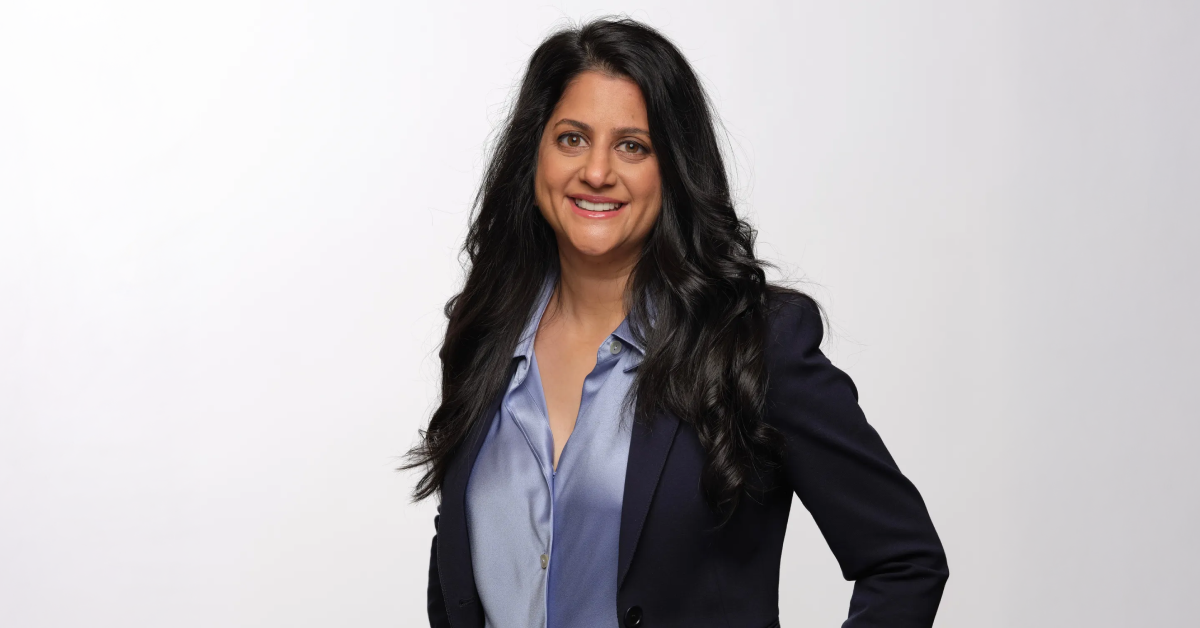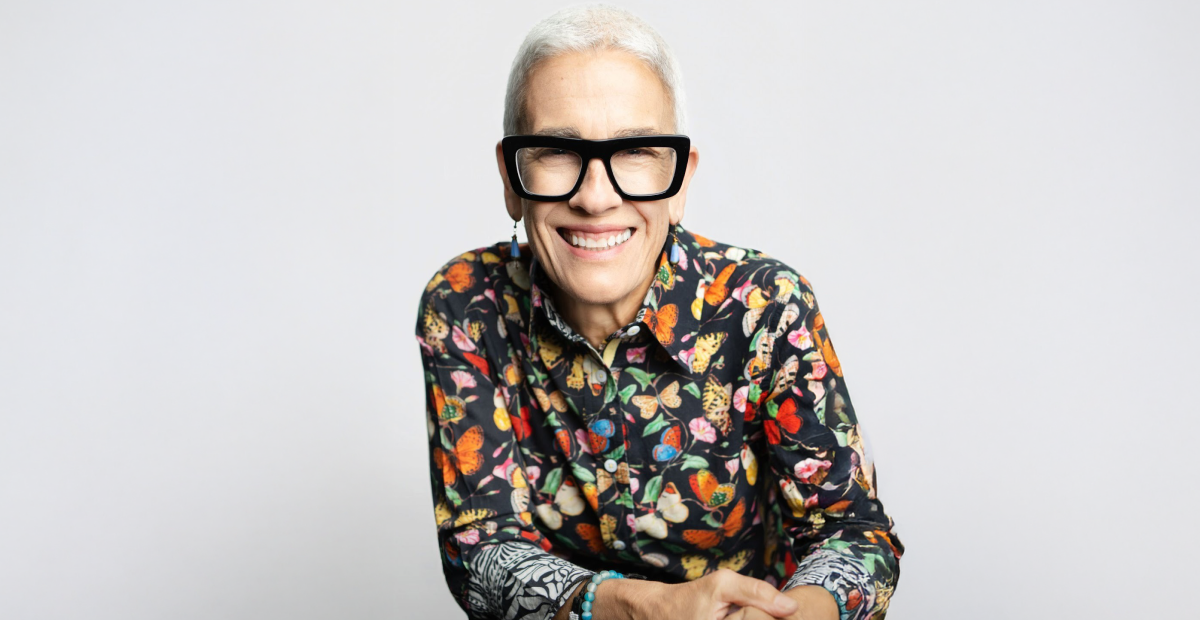The biggest career wins often come with risk. On our series, The Big Bet, Chief speaks with some of the most powerful members in our network about that single moment when they bet on themselves — and won.
Chief Member Danielle Belton is not afraid of a challenge—she’s faced many in her life. From small-town beginnings, to persevering through a major health diagnosis, to leading one of the few media companies left during a precarious time for the industry, Belton carries on her role as Editor-in-Chief at HuffPost with a kind of confidence that accrues only after learning from many trials and tribulations.
In fact, she cites a very short-lived gig as a head writer for a late-night TV show as her biggest career bet. The show was quickly canceled and Belton didn’t even stay in the TV writing world, but it was one of those failures that gave Belton the courage to continue taking huge swings.
A native of Florissant, MO, Belton initially embarked on a traditional career in print journalism, working at several different regional newspapers. Then, things took a few turns—first, as print shifted towards digital, and next, when she was diagnosed with bipolar disorder.
“I was so sick that I had to move back home to live with my parents. I thought my life was over,” she recalls.
Despite her personal challenges, Belton never gave up on her dream of being a journalist. She started a voice- and opinion-driven blog called The Black Snob in 2007 that became so popular it propelled her into freelancing, which eventually landed her an editor role at The Root. After six years there she moved onto HuffPost, where she now leads a staff of nearly 130 people. “We’ve been profitable for two years in a row, and I’m hoping it'll be three. We’ve done a lot of great award-winning work and last year, we averaged around 328 million page views a month,” she says of the experience.
In this edition of the Big Bet, Belton shares how a career of failing upwards, and remaining persistent through it all, has always paid off.
On Finding Her Voice—and an Audience Along the Way
“[After my bipolar disorder diagnosis,] I tried really hard to not be a journalist because I thought it was too stressful of a field with my severe mood disorder. I took a job at Macy's folding sweaters. I tried to work at nonprofit and government entities. I hated all of it. So I started The Black Snob, a pop culture and politics blog. Since then, every job I've had up until HuffPost was because of it. It saved me. It blew up in 2008, when Obama first won Iowa during his historic candidacy for president, after I wrote a column that everyone shared on social media. I continued to build an audience by being one of the first bloggers to write about Michelle Obama's clothes. I wrote about how Black Republicans feel about Barack Obama, about relationships between mothers and daughters that weren't healthy, and I even commissioned pieces by other people.”
On Going After Her Dream Job, No Matter What
“In 2014 I was freelancing for The Root, and I wanted a job there badly. I befriended every managing editor The Root ever had and emailed them my ideas and asked them, ‘Will you hire me?’ When they were working on their annual The Root 100 list of the most influential Black people that year, the writers they hired to write the bios had bailed and the copy was due in a week. Lyne Pitts, who was then the managing editor, was trying to find writers who could do the rest of the work. I said I'll do it all. I got up at five in the morning, did a bunch of research, and wrote bios every day for a week. I ended up writing almost every bio for The Root 100 in 2014. I built up so much goodwill. In the spring of 2015, I called her up and said, “Lyne, I would like a job.” Two days later, she called me back and said her associate editor quit and asked if I wanted the job. The rest is history.”
On Staying Loud in the Wake of Political Unrest
“My role at The Root really took off. I recruited a bunch of great writers. I wrote a lot of great content. I did a whole series on Black Lives Matter that was really ambitious. They made me managing editor after a year. It was the job I've been trying to get since 2009, and it took six years. The first six months were really hard, and then I decided to radically change the content. After Trump got elected, I felt like we needed to adapt to this new political environment. I leaned really hard into the site’s voice being unapologetically Black. I think traffic ballooned by 300% in three months. We were the largest, most popular Black website on the internet when I was there. We won awards. We were a New York Times crossword puzzle clue. We were a throwaway line on an SNL skit with Issa Rae. It was an incredible time.”
On Why Short-Lived Big Bets Matter
“I've had a lot of big bet moments, but the craziest thing I ever did was become a head writer for late night television at BET in 2012. I'd never written a script before and here I was running a writer's room. The show was called Don't Sleep, and it was hosted by T.J. Holmes. We were trying to do our own version of The Daily Show meets The View. But the show only lasted four months.I thought I was going to be the next Shonda Rhimes, but none of that happened. I allowed myself to feel sad about it for five months, and then I told myself to get back out there.”
On Persevering in a Precarious Industry
“It's a rough time right now because there are not a lot of great monetization options for digital news sites, especially ones that are free. It's been tough trying to figure out how to diversify your revenue strategy and find ways to weather this turbulent storm that has taken out so many amazing publications and sites. My biggest fear is that there'll be four sites left when this is all over. I'm hoping we'll survive. But I only focus on what I can control. I can lead my organization to the best of my ability. I can try to protect my staff and get them the resources they need so they can do their jobs. I can be a sounding board, I can be supportive, and I can champion various causes like diversity and nurturing young people in this industry.”
On the Power of Self-Confidence
“The thing I say to people is you kind of have to be delusional if you want to be successful. Why would I think that I was going to make it in this industry, when I was some random person from nowheresville? I went to a no-name school. I had no access. I knew nobody. I shouldn't be in this job. But I believed in myself so much that I was going to figure it out. You have to believe that you're the golden child, that you're special, and that somehow you'll make it. Don’t be afraid of failure. I've failed plenty of times. Failure is just a lesson. Learn from it and apply it towards future success.”
On the Future of Diversity in Leadership
“We’re in a rough period because diversity is under attack and people are becoming cynical about weathering the storm. But this country's only becoming more diverse, and what we're going through right now is a backlash to it. Don’t give up on diversity. Don't give up on leadership. Don't give up on pursuing your career. Double down on it because we're going to need people who understand the nuances of what it means to be an American today, who understand that we're multifaceted and multiracial and multi-ethnic. That we come from many religions and backgrounds and abilities. There are so many things that make Americans American, and we need people who reflect that. So I say stay the course and don't let all this deter you. It's just noise.”



